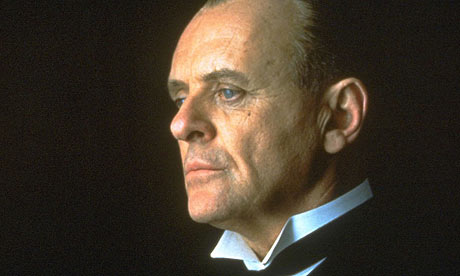
There are few things I look forward to more in the literary year than the publication of a new case for Erast Fandorin – the dashing, stammering, maddeningly brilliant hero of Boris Akunin's celebrated sequence of novels. Set in the dying embers of a late 19th-century Russian empire, each of Akunin's mysteries tackles a different style or mode of crime writing.
The Winter Queen, for example, is a classic tale of conspiracy; The Turkish Gambit a steel-edged spy story, while Murder on the Leviathan is a knowing, yet wholly respectful, paean to Agatha Christie and Arthur Conan Doyle. So on discovering that the latest Fandorin adventure, The Coronation, was to be narrated by a butler, my heart sank: surely it couldn't be a case of the butler did it, could it?
Akunin – whose novels are more popular than JK Rowling's in his native Russia – is too clever, too knowing of crime convention and cliché to allow that to happen, however. In Akunin's hands, the butler narrator – Afanasii Stepanovitch – is the story's focus, pushing Erast Fandorin to the margins of the story. It is testament to the writing of Akunin that this never detracts from the narrative suspense.
Afanasii Stepanovitch is a butler in the classic mode: vain, pompous, bluff and exacting. He is fond of using slang suffixed or prefixed by "as the common people like to say", and looks down on those unable to speak French or withhold their emotions in public. He is also immensely proud of his prodigious sideburns. He is one of the best of Akunin's creations – and those that have read him know what a compliment that is.
It's the first time that Akunin has used the first person in a Fandorin novel and it works admirably – despite some rather spurious reasons for Afanasii to be present at crucial junctures in the plot. And the reason for this is because butlers, and servants, are the privileged few who can be present at a scene without having been invited, who can comment on the action without being party to it.
"The butler did it" presumably once had the ability to shock a readership. Perhaps this was because readers, like the characters they were following, had ignored the presence of "the staff" until they were revealed as the culprits. Such an attitude sounds wedded to a long-gone generation, but my grandmother was in service and claims that she was still party to secrets by virtue of social invisibility – though whether her reports of Virginia Woolf extolling the virtues of drinking one's own urine are true is quite another matter.
It's this ability to slip from room to room, unseen, unobserved that makes servants the perfect foil for novelists. Stevens's ghost-like presence in Kazuo Ishiguro's Remains of the Day illuminates the hallways of power, giving a subtle and subjective view on his masters. Ishiguro uses him wisely, adopts a buttoned-up style that feels like you should really be wearing a dinner suit to read it; that crisp, clipped voice reminding us of a vanishing time and allowing us to observe above and below stairs as twin examples of cultural change.
In Stevens's discourse on what is a great butler (not who, he notes, but what) he pours scorn on the trend for butlers to be shown off as knowledgeable in matters of general knowledge and with an extensive vocabulary; and worse, those butlers who achieve such fame that other families try to tempt them to another house. It's hard not to raise a smile, and perhaps a glass, to that most iconic of gentleman's gentleman, Wodehouse's inimitable Jeeves.
Stephens, Jeeves and Afanasii Stepanovitch, despite being quartered with very different masters in three very distinct genres, nonetheless share a similar sensibility. Brilliant, unflappable, they might want to be seen and heard only when a glass needs refreshing or a cigarette lit, but they can't help but be involved in the events around them.
But the success of such novels is not simply down to the butler's access-all-areas job status. As the days of service become ever more remote and distant, such fictions gain a nostalgic glamour. It may be a vanished world, but there will always be a fascination to what the butler saw.

